Ethics →
→
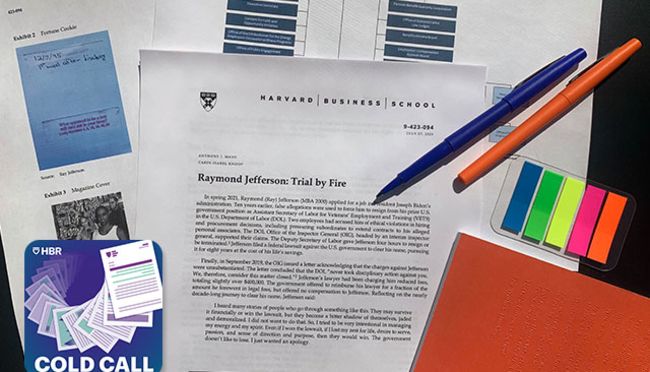
- 26 Mar 2024
- Cold Call Podcast
How Do Great Leaders Overcome Adversity?
In the spring of 2021, Raymond Jefferson (MBA 2000) applied for a job in President Joseph Biden’s administration. Ten years earlier, false allegations were used to force him to resign from his prior US government position as assistant secretary of labor for veterans’ employment and training in the Department of Labor. Two employees had accused him of ethical violations in hiring and procurement decisions, including pressuring subordinates into extending contracts to his alleged personal associates. The Deputy Secretary of Labor gave Jefferson four hours to resign or be terminated. Jefferson filed a federal lawsuit against the US government to clear his name, which he pursued for eight years at the expense of his entire life savings. Why, after such a traumatic and debilitating experience, would Jefferson want to pursue a career in government again? Harvard Business School Senior Lecturer Anthony Mayo explores Jefferson’s personal and professional journey from upstate New York to West Point to the Obama administration, how he faced adversity at several junctures in his life, and how resilience and vulnerability shaped his leadership style in the case, "Raymond Jefferson: Trial by Fire."
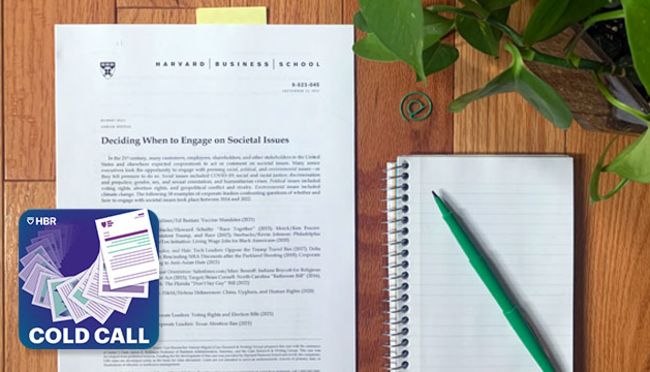
- 02 Jan 2024
- Cold Call Podcast
Should Businesses Take a Stand on Societal Issues?
Should businesses take a stand for or against particular societal issues? And how should leaders determine when and how to engage on these sensitive matters? Harvard Business School Senior Lecturer Hubert Joly, who led the electronics retailer Best Buy for almost a decade, discusses examples of corporate leaders who had to determine whether and how to engage with humanitarian crises, geopolitical conflict, racial justice, climate change, and more in the case, “Deciding When to Engage on Societal Issues.”
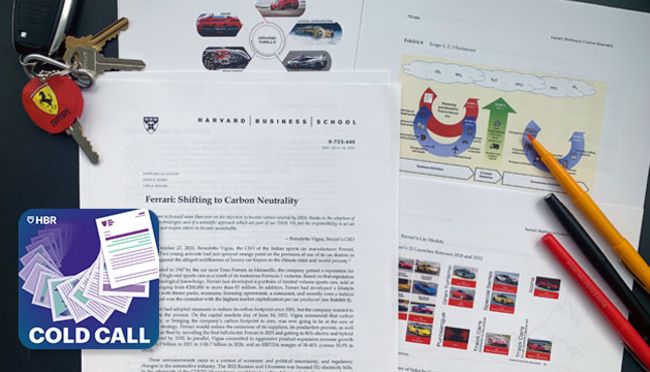
- 12 Dec 2023
- Cold Call Podcast
Can Sustainability Drive Innovation at Ferrari?
When Ferrari, the Italian luxury sports car manufacturer, committed to achieving carbon neutrality and to electrifying a large part of its car fleet, investors and employees applauded the new strategy. But among the company’s suppliers, the reaction was mixed. Many were nervous about how this shift would affect their bottom lines. Professor Raffaella Sadun and Ferrari CEO Benedetto Vigna discuss how Ferrari collaborated with suppliers to work toward achieving the company’s goal. They also explore how sustainability can be a catalyst for innovation in the case, “Ferrari: Shifting to Carbon Neutrality.” This episode was recorded live December 4, 2023 in front of a remote studio audience in the Live Online Classroom at Harvard Business School.

- 11 Dec 2023
- Research & Ideas
Doing Well by Doing Good? One Industry’s Struggle to Balance Values and Profits
Few companies wrestle with their moral mission and financial goals like those in journalism. Research by Lakshmi Ramarajan explores how a disrupted industry upholds its values even as the bottom line is at stake.

- 27 Nov 2023
- Research & Ideas
Voting Democrat or Republican? The Critical Childhood Influence That's Tough to Shake
Candidates might fixate on red, blue, or swing states, but the neighborhoods where voters spend their teen years play a key role in shaping their political outlook, says research by Vincent Pons. What do the findings mean for the upcoming US elections?

- 21 Nov 2023
- Op-Ed
The Beauty Industry: Products for a Healthy Glow or a Compact for Harm?
Many cosmetics and skincare companies present an image of social consciousness and transformative potential, while profiting from insecurity and excluding broad swaths of people. Geoffrey Jones examines the unsightly reality of the beauty industry.

- 09 Nov 2023
- HBS Case
What Will It Take to Confront the Invisible Mental Health Crisis in Business?
The pressure to do more, to be more, is fueling its own silent epidemic. Lauren Cohen discusses the common misperceptions that get in the way of supporting employees' well-being, drawing on case studies about people who have been deeply affected by mental illness.
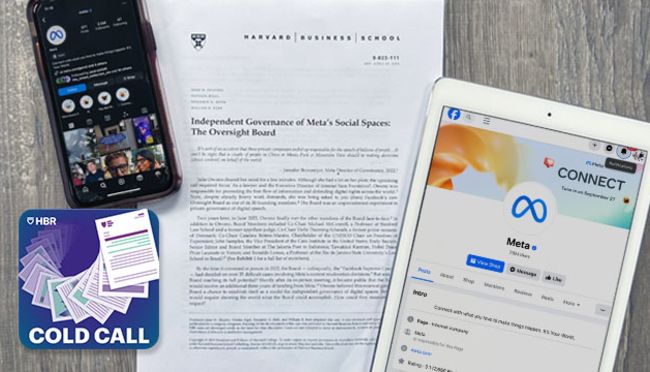
- 07 Nov 2023
- Cold Call Podcast
How Should Meta Be Governed for the Good of Society?
Julie Owono is executive director of Internet Sans Frontières and a member of the Oversight Board, an outside entity with the authority to make binding decisions on tricky moderation questions for Meta’s companies, including Facebook and Instagram. Harvard Business School visiting professor Jesse Shapiro and Owono break down how the Board governs Meta’s social and political power to ensure that it’s used responsibly, and discuss the Board’s impact, as an alternative to government regulation, in the case, “Independent Governance of Meta’s Social Spaces: The Oversight Board.”

- 24 Oct 2023
- HBS Case
From P.T. Barnum to Mary Kay: Lessons From 5 Leaders Who Changed the World
What do Steve Jobs and Sarah Breedlove have in common? Through a series of case studies, Robert Simons explores the unique qualities of visionary leaders and what today's managers can learn from their journeys.
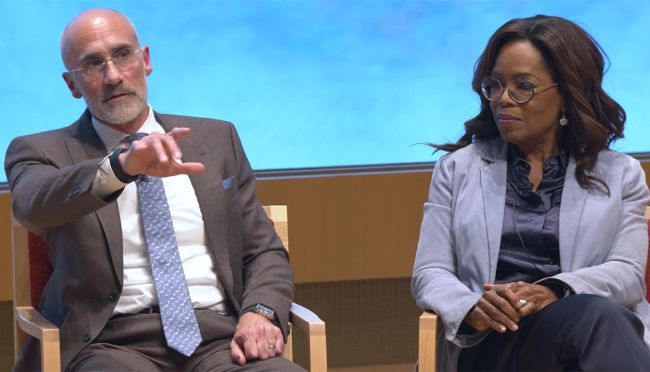
- 03 Oct 2023
- Research Event
Build the Life You Want: Arthur Brooks and Oprah Winfrey Share Happiness Tips
"Happiness is not a destination. It's a direction." In this video, Arthur C. Brooks and Oprah Winfrey reflect on mistakes, emotions, and contentment, sharing lessons from their new book.

- 12 Sep 2023
- Book
Successful, But Still Feel Empty? A Happiness Scholar and Oprah Have Advice for You
So many executives spend decades reaching the pinnacles of their careers only to find themselves unfulfilled at the top. In the book Build the Life You Want, Arthur Brooks and Oprah Winfrey offer high achievers a guide to becoming better leaders—of their lives.

- 10 Jul 2023
- In Practice
The Harvard Business School Faculty Summer Reader 2023
Need a book recommendation for your summer vacation? HBS faculty members share their reading lists, which include titles that explore spirituality, design, suspense, and more.
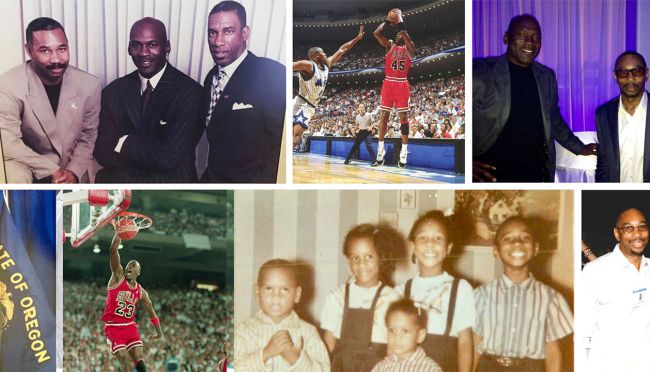
- 01 Jun 2023
- HBS Case
A Nike Executive Hid His Criminal Past to Turn His Life Around. What If He Didn't Have To?
Larry Miller committed murder as a teenager, but earned a college degree while serving time and set out to start a new life. Still, he had to conceal his record to get a job that would ultimately take him to the heights of sports marketing. A case study by Francesca Gino, Hise Gibson, and Frances Frei shows the barriers that formerly incarcerated Black men are up against and the potential talent they could bring to business.
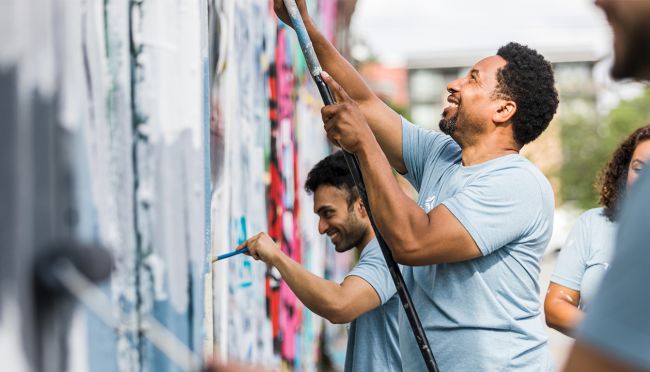
- 04 Apr 2023
- Book
Two Centuries of Business Leaders Who Took a Stand on Social Issues
Executives going back to George Cadbury and J. N. Tata have been trying to improve life for their workers and communities, according to the book Deeply Responsible Business: A Global History of Values-Driven Leadership by Geoffrey Jones. He highlights three practices that deeply responsible companies share.
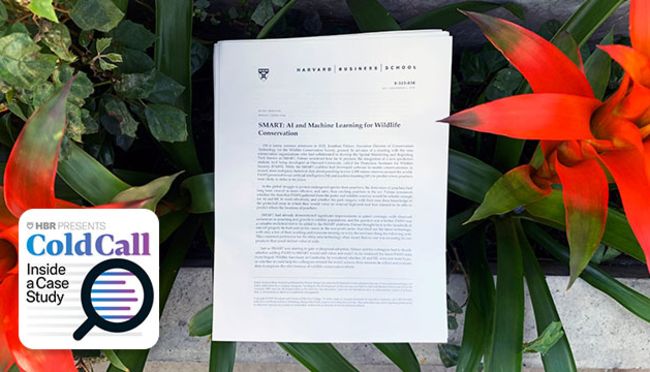
- 14 Mar 2023
- Cold Call Podcast
Can AI and Machine Learning Help Park Rangers Prevent Poaching?
Globally there are too few park rangers to prevent the illegal trade of wildlife across borders, or poaching. In response, Spatial Monitoring and Reporting Tool (SMART) was created by a coalition of conservation organizations to take historical data and create geospatial mapping tools that enable more efficient deployment of rangers. SMART had demonstrated significant improvements in patrol coverage, with some observed reductions in poaching. Then a new predictive analytic tool, the Protection Assistant for Wildlife Security (PAWS), was created to use artificial intelligence (AI) and machine learning (ML) to try to predict where poachers would be likely to strike. Jonathan Palmer, Executive Director of Conservation Technology for the Wildlife Conservation Society, already had a good data analytics tool to help park rangers manage their patrols. Would adding an AI- and ML-based tool improve outcomes or introduce new problems? Harvard Business School senior lecturer Brian Trelstad discusses the importance of focusing on the use case when determining the value of adding a complex technology solution in his case, “SMART: AI and Machine Learning for Wildlife Conservation.”
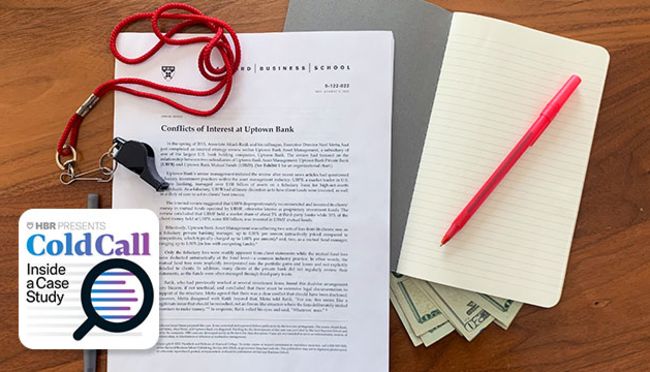
- 14 Feb 2023
- Cold Call Podcast
Does It Pay to Be a Whistleblower?
In 2013, soon after the US Securities and Exchange Commission (SEC) had started a massive whistleblowing program with the potential for large monetary rewards, two employees of a US bank’s asset management business debated whether to blow the whistle on their employer after completing an internal review that revealed undisclosed conflicts of interest. The bank’s asset management business disproportionately invested clients’ money in its own mutual funds over funds managed by other banks, letting it collect additional fees—and the bank had not disclosed this conflict of interest to clients. Both employees agreed that failing to disclose the conflict was a problem, but beyond that, they saw the situation very differently. One employee, Neel, perceived the internal review as a good-faith effort by senior management to identify and address the problem. The other, Akash, thought that the entire business model was problematic, even with a disclosure, and believed that the bank may have even broken the law. Should they escalate the issue internally or report their findings to the US Securities and Exchange Commission? Harvard Business School associate professor Jonas Heese discusses the potential risks and rewards of whistleblowing in his case, “Conflicts of Interest at Uptown Bank.”
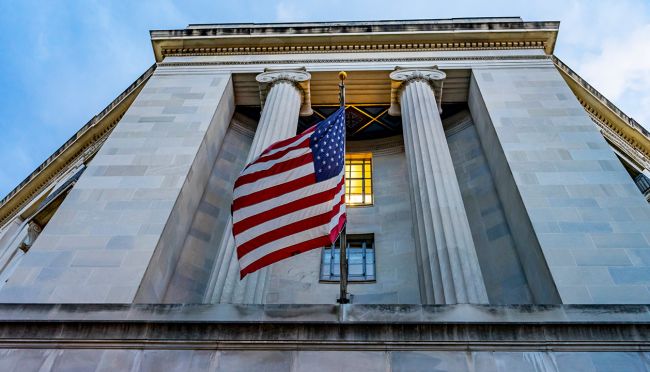
- 17 Jan 2023
- Book
Good Companies Commit Crimes, But Great Leaders Can Prevent Them
It's time for leaders to go beyond "check the box" compliance programs. Through corporate cases involving Walmart, Wells Fargo, and others, Eugene Soltes explores the thorny legal issues executives today must navigate in his book Corporate Criminal Investigations and Prosecutions.

- 29 Nov 2022
- Cold Call Podcast
How Will Gamers and Investors Respond to Microsoft’s Acquisition of Activision Blizzard?
In January 2022, Microsoft announced its acquisition of the video game company Activision Blizzard for $68.7 billion. The deal would make Microsoft the world’s third largest video game company, but it also exposes the company to several risks. First, the all-cash deal would require Microsoft to use a large portion of its cash reserves. Second, the acquisition was announced as Activision Blizzard faced gender pay disparity and sexual harassment allegations. That opened Microsoft up to potential reputational damage, employee turnover, and lost sales. Do the potential benefits of the acquisition outweigh the risks for Microsoft and its shareholders? Harvard Business School associate professor Joseph Pacelli discusses the ongoing controversies around the merger and how gamers and investors have responded in the case, “Call of Fiduciary Duty: Microsoft Acquires Activision Blizzard.”

- 15 Nov 2022
- Book
Stop Ignoring Bad Behavior: 6 Tips for Better Ethics at Work
People routinely overlook wrongdoing, even in situations that cause significant harm. In his book Complicit: How We Enable the Unethical and How to Stop, Max Bazerman shares strategies that help people do the right thing even when those around them aren't.

Struggling With a Big Management Decision? Start by Asking What Really Matters
Leaders must face hard choices, from cutting a budget to adopting a strategy to grow. To make the right call, they should start by following their own “true moral compass,” says Joseph Badaracco.